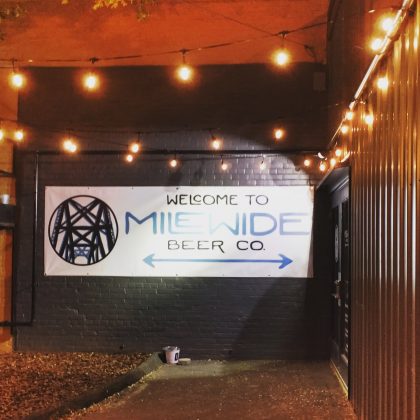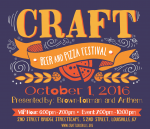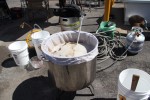Ronnie Raygun had just been elected king when two of my friends returned from college bearing liquid gifts.
One of them carried bottles of Pilsner Urquell, and the other Guinness Export Stout. I’d already developed a taste for what nowadays would be called American Dark Lager, but these two new imported beer brands made a deep, lasting impression, and I found myself turned in a completely new direction.
From that summer forward, like fading lights on a distant, murky shore, the default mass-market American lagers of youth began to recede inexorably from view. The only question during that lost age was whether I could work often enough at inconsequential, non-binding jobs to pay for better beer at home while still amassing the savings necessary to travel to Europe in search of the beer culture that seemed to be lacking here at home.
Sometimes the answer was yes, and at other times, no. Every now and then, it would be back to the egg, reluctantly choking down brain-dead swill and pretending it was nectar, at least until the coffers again were replenished.
You do what you have to do, until you needn’t do it any longer – and I haven’t, for a very long time.
Eventually matters improved and I stopped punishing myself with ersatz alcohol delivery devices. Serendipitously, beer then became my line of work. There was a pub, then a brewery, and later another of each, all of them affording ample opportunity to drink the profits. Like the wise German once said: “In heaven there is no beer; that’s why we drink it here.”
Granted, little of this back story matters very much at this late date. Thirty years is the same as three decades, whether they’re the times of your life or mine. I didn’t consciously set out to be a lifer in the beer business, although now it increasingly looks like it will turn out that way. The cracked rear view mirror now encompasses far more terrain traveled than mileage to come, and sometimes I look into the mirror to adjust my beard beads and ponder:
Given that it’s been such a long, strange, trip, exactly where am I standing today?
—
First and foremost, it’s still all about the beer for me. Craft beer, good beer, real beer, better beer … terminology itself can become a hindrance. I know it when I taste it, but the cognitive process never is altogether that simple for me.
Just as surely as quality is to be desired, narcissism is to be avoided. Analyzing a beer to the exclusion of its back story is an exercise in futility, because I’ve always known that in terms of human history and culture, beer doesn’t exist in a vacuum, and accordingly, it cannot be consumed with a mindset divorced from its surroundings. An awareness of localism informs my choices these days.
As a brewery and restaurant owner, I know that our businesses are community based. We’re small and independent, making our way in a corporatized world of chains, franchises and economies of scale designed to enforce the depravity of conformity, and both as a contrarian and a true believer, I simply cannot regard even the “best” beer ever brewed (a concept I find quite ridiculous, by the way) apart from factors behind the label.
Plainly, origins matter. Moreover, where does the money trail lead? The beer renaissance in America is artistic and aesthetic, and wedded to principles we blithely abandon to our extreme detriment. A return to commodity status cannot be discounted – and that’s why external vigilance is preferred to self-centered absorption. Craft beer is “better” than mass-market beer, but when craft emulates every aspect of the commodity-based money market that preceded it, nothing except the flavor has changed.
In which case, flavor isn’t nearly enough.
Every single day, I think carefully about where I spend my own money, and my company’s, and insofar as spending can be shifted to small indie businesses like my own, that’s what I try to do. It’s impossible to be entirely pure in this sense, but angelic purity never was the whole point. Shift is, and recognizing the degree to which we engage in existential struggles each and every day.
Having fundamental beliefs and seeking to apply them in an often uncooperative world – fighting the good fight – is what gets me out of bed in the morning.
Yes, I still remain an unrepentant fan of beer at its best, and I retain a childlike, gleeful wonderment much of the time even if I may seem cynical and aloof, but there is considerable discomfort in what passes for my soul with labels like “geek,” “aficionado” and even “enthusiast,” which I once preferred. Of course, anything’s better than being a “snob.”
Categorizations inevitably lead to stereotypes, and to an extent, I’m as guilty of this as anyone, as evidenced by my reluctance to surrender the word “swill” in pursuit of daily polemics. But as a beer polemicist, I’ll just stick to my precepts and risk caricature.
I’m more convinced than ever that localism is the proper course for craft beer, and the reason for my conviction is that I’ll always be a beer traveler at heart, even when forced to be stationary and fixed to a spot. What is local, distinctive, and different about a place and its people? There’s little of interest being there otherwise.
The contrarian in me seeks diversity and uniqueness. When you’ve experienced it elsewhere, you see how important it is in your own locale. The point isn’t to escape one’s hometown blandness for too few days each year, only to return to the same old detached despair. Rather, one brings back experience and insight along with more ephemeral souvenirs, and seeks to make his or her own place on the planet unique, diverse and interesting.
Think globally, drink locally. It’s true more than ever before. Drinking is easy.
It’s the other part that’s hard.





